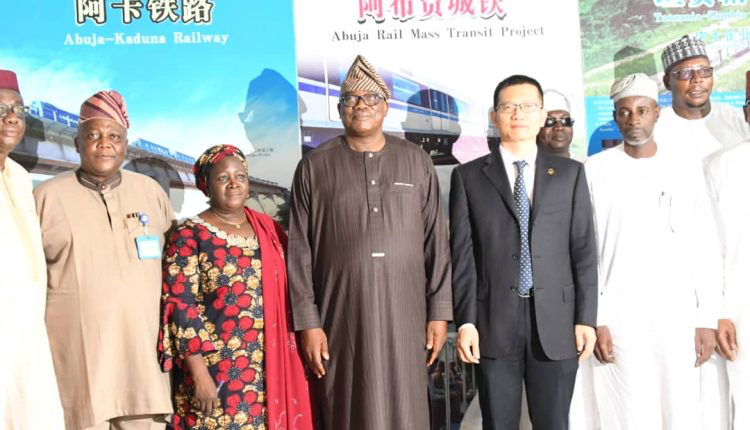[ad_1]
The federal capital territory administration (FCTA) has announced the award of a N5 billion contract for the rehabilitation of Abuja rail mass transit (ARMT) system.
Olusade Adesola, permanent secretary, FCTA, told NAN on Friday that the aim was to restore the vital rail transportation infrastructure, which he described as the “life blood of Abuja.”
He said the project would be executed by China Civil Engineering Construction Corporation Ltd (CCECC) within 12 months.
According to him, the Abuja light rail will play a crucial role in easing transportation challenges and enhancing mobility for residents.
He explained that the outbreak of the COVID-19 pandemic necessitated the temporary shutdown of the rail system as part of measures to curb the spread of the virus.
Adesola added that during the period of inactivity, hoodlums vandalised essential equipment of the rail system which was a “serious setback”.
The permanent secretary said that contracts for the provision of security for the ARMT system have been awarded.
“We are taking stringent measures to safeguard this valuable asset,” he said.
“We will not allow the actions of a few vandals to undermine the progress and potential of this essential public service.
“We will leave no stone unturned in restoring the Abuja Light Rail System to its former glory and ensuring it surpasses its previous performance.”
Adesola explained that the rehabilitation would involve the repair and replacement of damaged equipment, upgrading of facilities, and implementing modern security measures to protect against future threats.
He assured residents that the process would be expedited without compromising quality.
On his part, Wang Xixue, managing director, CCECC, said the rehabilitation of the vandalised components of the ARMT system was critical to the development of the transportation system in the FCTA.
“As a socially responsible company, we are concerned about the development of the public transport system in FCTA and within Nigeria,” he said.
“We will maintain close cooperation with relevant stakeholders, to contribute to the development of an advanced public railway transport system.”
[ad_2]
Source link



